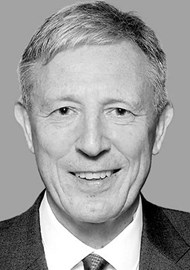I read in the paper last week that an 86-year-old plastic surgeon, Franklin Li, was being charged with 21 offences that were associated with the death of a top Hong Kong banker, Zoe Cheung, in a beauty clinic in Tsim Sha Tsui, in November last year. It was the first ‘Botox death’ in the city. An autopsy could not establish cause of death. The administration of the toxin resulted in death but there was no explanation. Twenty-one charges including telling lies to the police and not keeping records appropriately, particularly relating to dangerous drugs. The description of his clinic and his practice reveals a cluster of unconscious incompetence. In 2003 I was involved as a police witness in the inquest of a piano teacher who had died in Franklin Li’s clinic after he had injected adrenaline for vasoconstriction in liposuction. What is striking is that he lived in chaos in 2003 and things do not seem to have got much better. In 2009 he was ‘hauled’ up in front of the Hong Kong Medical Council (HKMC) and struck off for five months. The HKMC has a backlog of complaint cases lasting years. So, keep that in mind: a lawful medical practitioner in Hong Kong. He is 86-years-old. He has a long history of keeping bad records. He was slapped on the wrist. Now a patient is dead following injections with hollow bore needles into the face. Why do I mention that? Precisely because I have previously witnessed a farcical attempt to uphold the law, regarding ‘hollow bore needle injections’ in Hong Kong; only a registered medical practitioner shall inject a substance into the body with hollow bore needles.
So, there was this beauty clinic in Hong Kong; it was owned by a business man and run by beauticians. They had some interesting devices and techniques. One such device was a ‘vital injector’. This was a smart machine made in Korea. It used several hollow bore needles in a disposable pack. These needles would draw up a designated amount of hyaluronic acid and inject it with a certain force into certain places of the skin. Volume, speed and amount. All computer controlled. Human error had been engineered out of the process. The police expert was Walter King. He had cut and selectively pasted his expert report from a whole bunch of online pages. It was most unprofessional. He showed us an example of one of his patients having a similar procedure performed in his clinic. It was very bloody. Also, all the advantages of using a closed system were destroyed by the fact he opened a closed system to add extraneous factors (a non-evidenced based cocktail of drugs). The charges were against the beautician in that she “practised medicine without a licence”. She practised medicine because she injected hyaluronan into the mid-dermal layer of the facial skin through hollow bore needles using a computer-controlled device. She had been through certified training in using the machine and had treated a significant number successfully. She was caught in a police sting operation. The experts for the prosecution, including Walter, brought this hollow bore needle thing as the defining criteria of whether ‘medicine’ had been practised. The idea is that injecting into the skin carries risks. And to be fair to the public only those who could appreciate the risks should perform the procedure / injection. There are issues about reproducibility. Depth, amount and speed of injection were variables. These were the very variables eliminated in the design of the vital injector. Walter should have been in the dock, not the beautician. But then it would have come out that he used false qualifications on the CV which accompanied his expert report. He had never been through formal training in plastic surgery but entered the specialty through a Grandfather clause in the 1993 formation of the Hong Kong Academy of Medicine. What really irked me was that despite the obvious deception with this selective cut and pasting, the magistrate said in his oral judgement that Walter had appeared a reliable expert; the magistrate could not grasp the technological advances that made previous practice guidelines redundant. The magistrate did not oversee the exploration and administration of justice. He was not skilled in this area of medicine and could not make the appropriate judgements. In the inquisitorial justice system, the judges / investigators undergo specialised training to allow them to assess contributary and causal links to an outcome. You cannot have amateurs ruling in law.
COMMENTS ARE WELCOME




